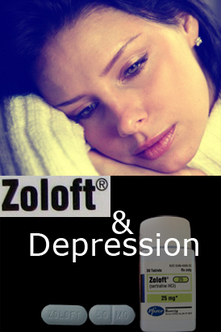
About 40 to 50 percent of patients who survive a stroke develop a post-stroke depression according to the UIHealth. care website. Strokes vary in their effect, depending on the amount of tissue damage. The impact can be either mild or stronger, from challenges in finding words to paralysis, weakness, loss of motor control, and disturbance in thinking, feeling, writing, memory, speech and emotional functioning.
Many patients who survive stroke feel fear, anxiety, frustration, anger, sadness, and a sense of grief for their physical and mental losses according to the United States National Institute of Neurological Disorders and Stroke. The effect of clinical depression in a person is evident when the person feels hopelessness and is becoming unproductive. The emotional disorder is the most commonly experienced by stroke survivors.
Symptoms of clinical depression includes sleep disturbances and a radical change in eating patterns that may lead to sudden weight loss or gain, lethargy, social withdrawal, irritability, fatigue, self-loathing, and suicidal thoughts. Post-stroke depression can be treated with antidepressant medications.
However, antidepressant drugs like Zoloft has several side effects such as Zoloft birth defect which is the case of the Hodge family from Ohio, who filed a Zoloft birth defect lawsuit against Pzifer, the manufacturer, and cardinal health, the distributor of Zoloft
What is described as the “absence of a large part of the brain and skull is anencephaly, which is a nueral tube defect that they claimed their son was suffering from. The death of their child who lived for just 18 hours was caused by a birth defect. This defect is one of many that can occur when a woman takes Zoloft or another antidepressant in the selective serotonin reuptake inhibitors (SSRI's) class of drugs while she is pregnant.
Many patients who survive stroke feel fear, anxiety, frustration, anger, sadness, and a sense of grief for their physical and mental losses according to the United States National Institute of Neurological Disorders and Stroke. The effect of clinical depression in a person is evident when the person feels hopelessness and is becoming unproductive. The emotional disorder is the most commonly experienced by stroke survivors.
Symptoms of clinical depression includes sleep disturbances and a radical change in eating patterns that may lead to sudden weight loss or gain, lethargy, social withdrawal, irritability, fatigue, self-loathing, and suicidal thoughts. Post-stroke depression can be treated with antidepressant medications.
However, antidepressant drugs like Zoloft has several side effects such as Zoloft birth defect which is the case of the Hodge family from Ohio, who filed a Zoloft birth defect lawsuit against Pzifer, the manufacturer, and cardinal health, the distributor of Zoloft
What is described as the “absence of a large part of the brain and skull is anencephaly, which is a nueral tube defect that they claimed their son was suffering from. The death of their child who lived for just 18 hours was caused by a birth defect. This defect is one of many that can occur when a woman takes Zoloft or another antidepressant in the selective serotonin reuptake inhibitors (SSRI's) class of drugs while she is pregnant.
The about.com website defines SSRIs as a class of medications used as a treatment of psychological conditions, including depression and anxiety disorders. What is involved in a person's mood is serotonin which is the chemical in the brain.
The low supply of serotonin in their brain make some people feel depressed or experience anxiety attack. The increase of levels of serotonin in the brain and improving the mood of a patient is caused by SSRIs.
According to a recent study by the University of Iowa Hospitals and Clinics, researchers attest that both physical and intellectual impairments will improve when the post-stroke depression will be cured by an antidepressant medication. Psychological counseling can also be an option
Although careful supervision and monitoring of toxicity and side effects should be maintained, especially among pregnant women, because the intake of an antidepressant such as Zoloft can cause several side effects such as Zoloft birth defects.
The low supply of serotonin in their brain make some people feel depressed or experience anxiety attack. The increase of levels of serotonin in the brain and improving the mood of a patient is caused by SSRIs.
According to a recent study by the University of Iowa Hospitals and Clinics, researchers attest that both physical and intellectual impairments will improve when the post-stroke depression will be cured by an antidepressant medication. Psychological counseling can also be an option
Although careful supervision and monitoring of toxicity and side effects should be maintained, especially among pregnant women, because the intake of an antidepressant such as Zoloft can cause several side effects such as Zoloft birth defects.
REFERENCES:
http://www.ninds.nih.gov/disorders/stroke/poststrokerehab.htm
http://www.ehow.com/facts_5839174_post-stroke-depression-treatment-medication.html
http://www.uihealthcare.com/topics/medicaldepartments/psychiatry/strokedepression/index.html
http://www.ninds.nih.gov/disorders/stroke/poststrokerehab.htm
http://www.ehow.com/facts_5839174_post-stroke-depression-treatment-medication.html
http://www.uihealthcare.com/topics/medicaldepartments/psychiatry/strokedepression/index.html
 RSS Feed
RSS Feed